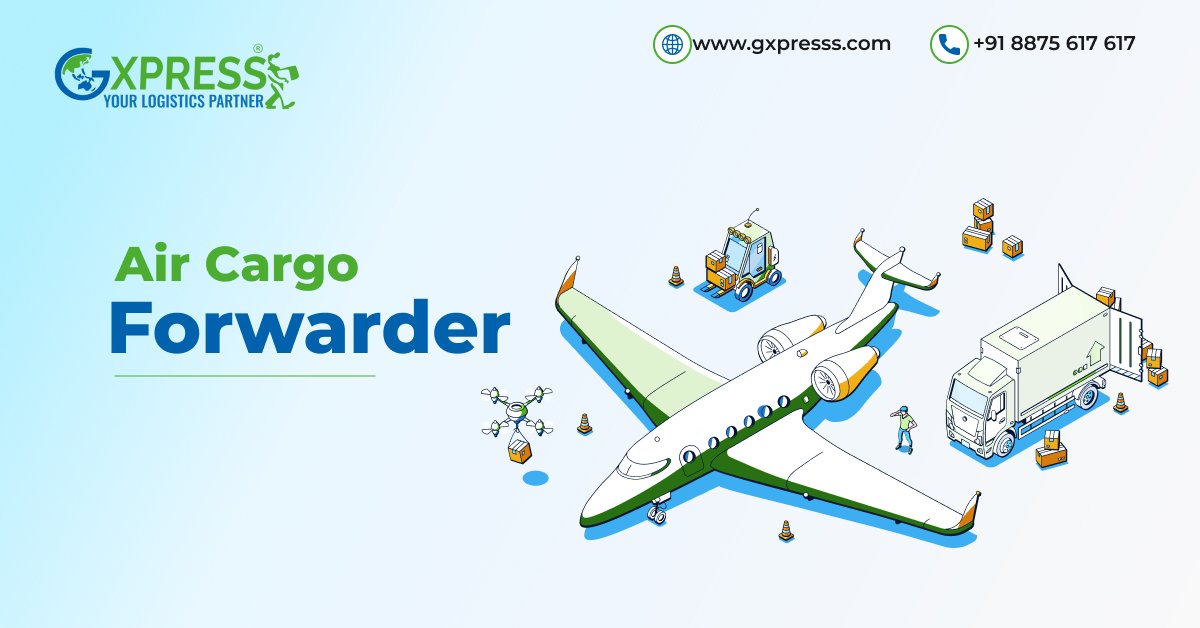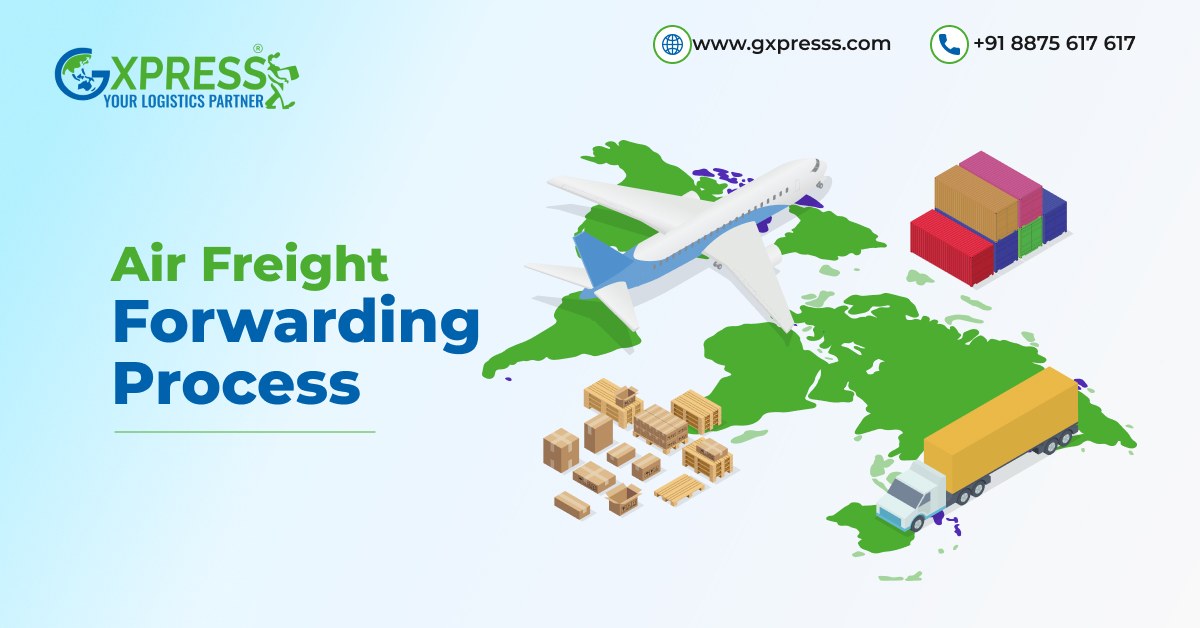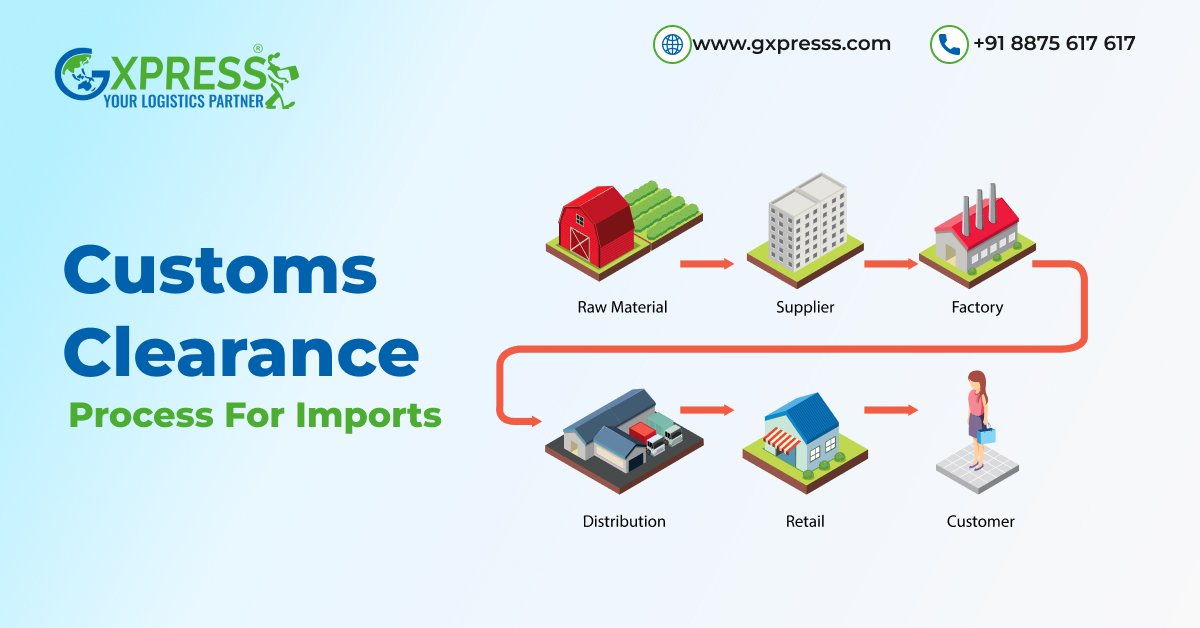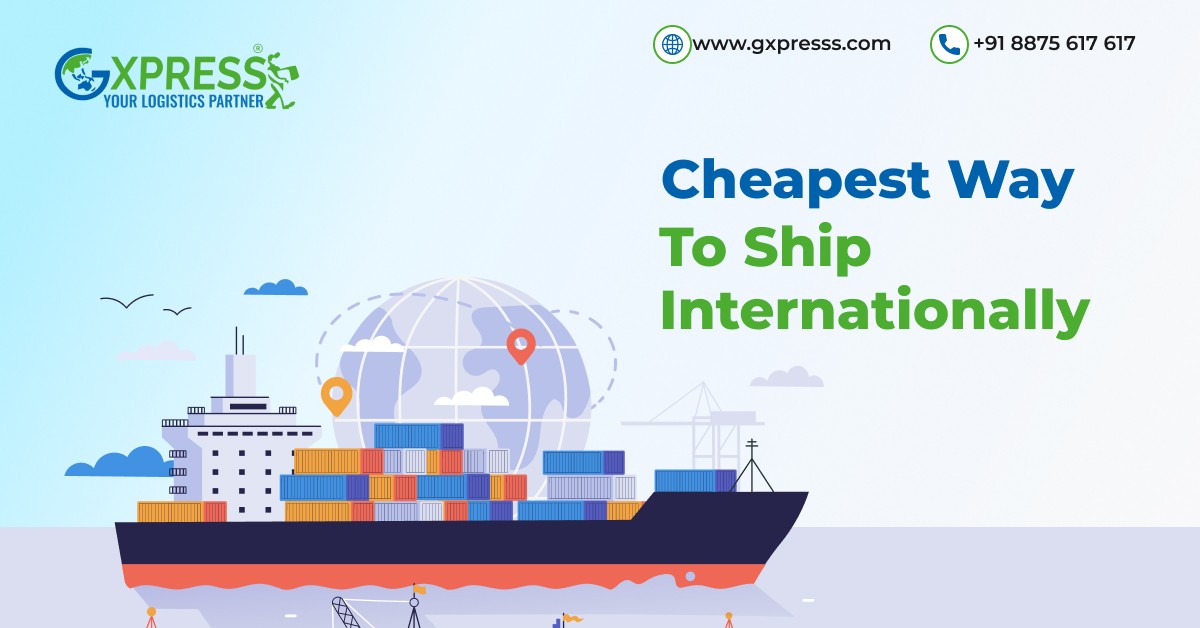September 2, 2025Freight9 min readBy Admin
Inside the Air Cargo Forwarding Process: What Happens After Takeoff

Behind the success of a big business is its trustworthy and reliable air cargo forwarder. Suppose high-value electronic goods are sent from New Delhi to New York in a plane. Many people think that the most difficult part of the air freight forwarding process is the takeoff. But in fact, it is only the departure that marks the end of the story.
Between the sky and the customer’s door, the next events are a very detailed process involving coordination, compliance, and continuous movement. Air cargo forwarding is not just about transporting goods by plane from one country to another.
It means that those goods are shipped through a complex network of airports, customs, handling agents, and last-mile connections, and that they are transported safely, on time, without any holdup in the procedure.
To get a clearer picture of the air freight logistics, we have to look beyond the plane venting.
Why Do Businesses Use Air Freight Logistics?
Products are not all such that they can afford to wait for weeks on a ship or days in a truck. In the global market of today, time is frequently worth more than money. This is exactly the point where the air cargo forwarder takes over.- Speed
- Reliability
- Global Reach
- Security
- Cost-cutting for Warehousing
After Takeoff: The Air Freight Forwarding Process
So, what really happens once your cargo is in the air? The journey does not stop while the plane is flying at 35,000 feet. A chain of synchronized activities ensures that your cargo is ready to go on as soon as the plane lands.1. Flight Monitoring and Coordination
Air cargo forwarders do not just let the aircraft take off and walk away. They track flights live, monitoring the weather, air traffic, and any delays that could affect the schedules. In the case of a storm diverting a plane, the forwarding team is already plotting other routes and connections.2. Pre-Arrival Preparation
On the ground, paperwork is being done digitally before the plane lands. Forwarders send pre-arrival notices to the destination airport; thus, customs officials and the ground handling team are aware and ready. This operation is essential to reduce the waiting time when the aircraft lands.3. Ground Handling at Destination Airport
Once the cargo arrives at the airport, the ground team removes it from the plane and places it in secure storage. Here, accuracy is necessary: if the goods are sensitive to temperature, they may be taken directly to the freezer, while general cargo is sorted according to where they will be delivered.4. Customs Clearance
One of the most vital steps after arrival is the customs clearance. Forwarders fill out the forms and hand them over, including commercial invoices, packing lists, and air waybills, so customs officials can calculate the duties, taxes, or restrictions. A quick clearance means that goods can leave the airport without a hitch, while the lack of paperwork can cause expensive hold-ups.5. Cargo Breakdown and Sorting
In case of multiple shippers on the same flight (common in consolidated air freight), the cargo is separated and sorted. Each shipment is unambiguously matched with its air waybill, and only then is it released for delivery.6. Last-Mile Delivery or Transfer
After being cleared, the cargo is either delivered to the last mile (warehouses, factories, or retail stores) or put on another flight to continue further international connections. This “airport-to-door” handover is where the forwarders’ local networks play a significant role. The air cargo forwarder is the conductor of the orchestra—making sure that no part of the process misses a beat. Learn More: Goods That Can Not Be Consolidated in Air FreightMake Freight Forwarding Easier: Air Freight Cargo Tracking
For businesses, one of the most frustrating feelings is the “black box” moment: not knowing where their cargo is. Fortunately, air cargo forwarding today leans heavily on technology to eliminate that uncertainty.1. Real-Time Tracking
The shipping agents offer traceability facilities that provide the exact details of the cargo to the consignors from loading to going through customs.2. Alerts & Notifications
If there is a change in the route or a delay, the alert is automatically forwarded, enabling businesses to change their plans in real time.3. Digital Documentation
The time when companies ran after paper bills is over. Electronic air waybills, customs filings, and proof of delivery are now integrated into user-friendly dashboards.Air Cargo Freight Forwarder: The Hidden Hero
To most outsiders, air freight might just look like a plane carrying boxes. But the reality is, nothing about this process would work without the air cargo freight forwarder. A freight forwarder is not the airline itself but the partner who manages the entire shipping process on behalf of businesses. They:- Arrange space with airlines.
- Handle documentation and compliance.
- Coordinate customs clearance at both ends.
- Offer consolidation services for small shipments.
- Provide end-to-end tracking and customer support.

Why Gxpress Stands Out
Among air cargo companies in India, Gxpress is dependable, knowledgeable about the situation, and the intricacies of international compliance.1. Global Network
By having links to the most considerable trade hubs, for example, the US, UK, UAE, and Europe, Gxpress is undoubtedly your cargo will have the reach, no matter where it is going.2. Customs Expertise
The process of going through customs can be very tricky. Gxpress does the job in a simple way by ensuring the accuracy of the documents and making the shipments free of any obstacles.3. Technology-Driven Tracking
We make digital handling of the airway bills and the live updates of the shipments user-friendly and transparent for you to have access to them anytime you need.4. Diverse Industry Handling
Whether it is medicine, clothes, electronic devices, or food, we come up with the perfect solution to meet the product’s specific requirements.5. Reliability
Gxpress always delivers on time so that businesses can plan ahead without worrying.Conclusion
The narrative of air cargo forwarder includes the processes of monitoring, customs clearance, ground handling, and last-mile delivery are the ones which take place in between. This can be an arduous experience for enterprises without the appropriate partner. Here is where the freight forwarders and, in particular, companies like Gxpress, come in handy. They make complication into simplicity, time into trust, and transport into business. Hence, whenever you watch a plane ascend into the sky, it would be better to keep in mind that the flight of cargo is not over at takeoff. It is only just starting, and with the right air cargo forwarder, that trip is the one leading directly to the success of your business.Frequently Asked Questions (FAQs)
Q1. What is air freight forwarding?
Air freight forwarding is a way of process in which the goods are transported over the air; the management and coordination of a particular shipment are the responsibilities of a freight forwarder.Q2. What are the stages of air shipment?
Firstly, book the cargo space. Then comes export customs clearance, airport handling and loading, flight departure, arrival at the destination airport, customs clearance, and cargo breakdown. Last is the final delivery.Q3. What are the procedures for air cargo?
The steps in the procedure are shipping documents; preparation (air waybill, invoices, packing list), airline booking, security check at the airport, customs clearance at the place of origin, loading of aircraft, arrival handling, destination customs clearance, and last-mile delivery.Q4. How to send air cargo?
Get in touch with an air cargo forwarder first. They will help you get the necessary shipment details and documents, ensure the packing of the goods is done correctly, and obtain export clearance. Then hand over the goods for air transportation.Q5. What is the difference between air cargo and air freight?
Air cargo refers to all the goods that are flown in the air, regardless of whether they are on freight planes or passenger flights. Air freight, on the other hand, is used to describe the service of shipping goods by air that is conducted by a freight forwarding company.Q6. What are the advantages and disadvantages of air cargo?
Advantages are that it's fast, reliable, and accessible. Disadvantages include high costs, cargo quantity/weight limits, and environmental pollution.Share this article:



